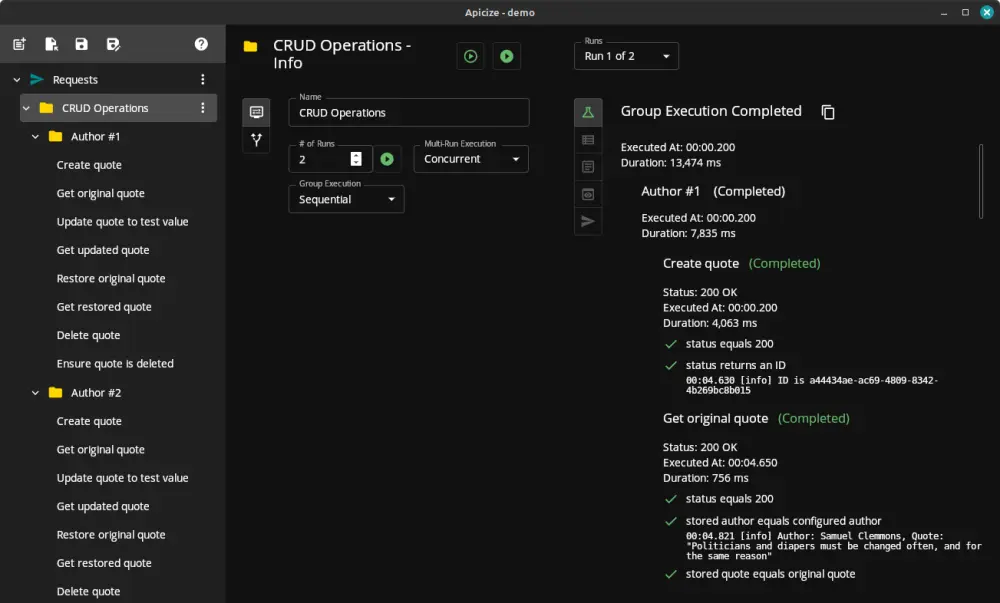Apicize is a cross-platform (Linux, Windows, MacOS) HTML testing tool that emphasizes testability and security. It is currently under development, but is functional and suitable for evaluation and testing. You can download the app from here.
Workbooks created in the UI can be executed via a CI/CD-friendly CLI runner. What this means (other than you can use too many acronyms in a sentence) is that your developers can easily create and use tests interactively, which can later be executed in build and/or deplyment pipelines without modification.
Getting Started
- Download an Apicize app installation from GitHub
- Run Apicize, and play with default demo workbook
- Submit bugs, feature requests, etc. to GitHub
- Review the Introductory Tutorial
- You can also download Linux builds (.deb/.rpm) of a CLI Apicize runner from GitHub
Who is Apicize for?
Apicize is for developers who want to be able to interactively test their APIs' functionality and scalability. It lives in the middle ground between manually scripting everything by hand, and feature-bloated tools with incessant up-selling features that distract as much as help you.
Apicize strives to remove friction in API testing. Results of API calls can easily and safely be evaluated using JavaScript. The same test workbooks created in the UI can be used by a compact CLI client to automate testing in CI/CD pipelines. You can control how credentials, certificates, etc. are stored and shared.


Some of Apicize's Features
- Interactively define HTTP requests, authorizations, client certificates and proxies
- Quickly assign and re-assign authorizations, certificates, proxies and testing scenarios (injectable variables) to requests or groups of tests
- Use JavaScript to easily define BDD-style tests that define if requests are successful
- Load testing capabilities (configure groups of requests to run a specified number of times, sequentially or in concurrently)
- Orchestrate sequences of requests to manage operations like CRUD testing and clean-up
- Manage how credentials are stored to clearly manage what is "shared" and what is not
- 100% open source, 0% nagging to get you to buy online subscriptions